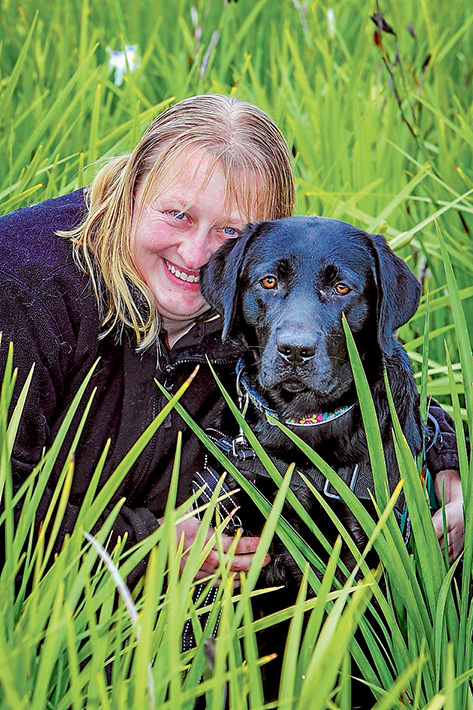
EVERY day dogs are heading off to work from their homes in and around Seaford and Frankston.
Once on the lead, they learn new skills and how to socialise in the wider world.
They’re off to shopping centres, riding escalators and sitting quietly in cafes.
Some go to children’s playgrounds and join in the fun, even going down slides.
But all this activity has a serious side; the dogs are being trained to help children cope with their lives.
Based in Seaford, Dogs for Kids with Disabilities (DKD), has already provided 40 families with assistance and companion dogs.
It can train 8-12 dogs a year and has 30 families on its waiting list.
Once allocated a trained dog, the families are themselves trained over two weeks in how to make sure the dog is obedient and retains its skills.
DKD founder Katie Hunter says there are two training levels for the dogs: companions and assistance.
Companion dogs “are a best mate for kids”, Hunter says. “They provide unconditional love and can be building blocks for a child learning new skills”.
“Just walking a dog in the street can be a circuit breaker. It’s the same for someone with disabilities, a dog can be a conversation starter.”
These companion dogs are taught a few tricks and even join their young masters in the playground.
“They can go down slides and are taught to give hugs and nudges with their nose. This can help if a child has a meltdown, lessening stress and shortening the intensity by lowering anxiety.”
Assistance dogs are trained to be much more aware, even to the point of dropping to the ground and providing an anchor for children who are “bolters and runners”. A special harness is used to link the dog and child.
“It’s almost as if the dog is taking the child for a walk and keeping them safe,” Hunter says.
“This can help with children who can’t be left alone and are hard to handle, which makes shopping difficult.”
Once the harness is on, the dog is fully focussed on its job.
“When the harness is off, they become a dog again.”
Hunter’s skills began nearly a decade ago when she worked as a trainer of guide dogs for the blind.
The dogs she selects for assistance and companion training come from the breeding stock of guide schools.
The dogs are mainly Labradors, golden retrievers and the so-called designer dogs, crossbred poodles, which are especially good for children with allergies.
Hunter attributes her 70 per cent success rate to the quality of puppies provided by the breeders.
At eight weeks of age they are taken in by volunteer “puppy raisers” and do not start their vocational training until they are 14 months.
This is the beginning of their working life. Living with families at “B and B homes”, the apprentices are collected by trainers each morning and returned at night.
They spend nights and weekends with their “families”.
Trainers are responsible for four dogs, each of which is taken on at least two 20-30-minute public outings a day.
At the moment DKD has 23 puppies in volunteer homes.
With that many dogs now under her ultimate care Ms Hunter admits to not knowing individual names. “I have a list.”
The breeding, intensive training and care does not come cheap, and Ms Hunter says families wanting an assistance or companion dog often need a “fundraising program” to buy a dog.
Assistance dogs are $30,000-$40,000 and companions $16,000.
“We ask families to have a fundraising program to see if they can get $8000 towards the companion dogs and we try to find $25,000 {from available grants] for assistance dog clients,” Ms Hunter says.
The volunteer DKD committee helps and advises families on fundraising activities.
As if she didn’t spend enough time with dogs, Hunter at home has a standard poodle and a Dalmatian cross.
Dogs for Kids with Disabilities needs families in Seaford, Frankston, Langwarrin or Chelsea to look after puppies.
Details www.dkd.org.au or call 9786 2909.